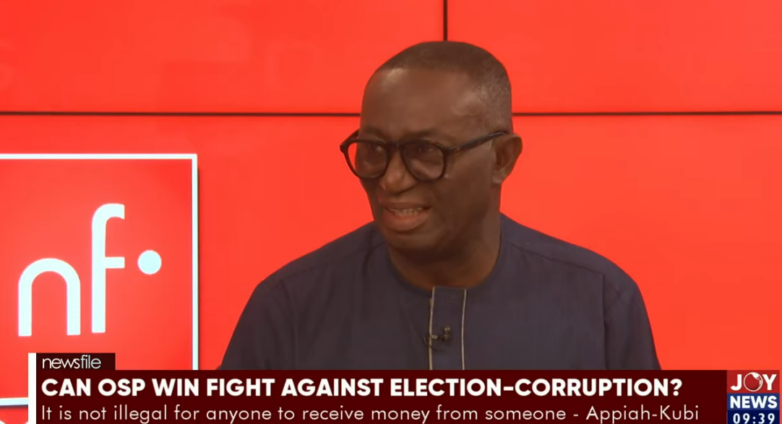Member of Parliament for Asante-Akim North, Andy Appiah-Kubi, raised concerns about a growing trend where government appointees are allegedly employing undisciplined means to oust MPs with whom they are supposed to collaborate.
Mr Appiah-Kubi emphasised the collaborative nature that should exist between MPs and executives, noting that the distribution of appointments, including the selection of CEOs, is meant to facilitate cooperation for the equitable distribution of power.
This comes in the wake of the arrest and subsequent release of National Entrepreneurship and Innovation Programme (NEIP) Chief Executive, Kofi Ofosu Nkansah over accusations of using public funds to fund personal parliamentary aspirations.
Speaking on JoyNews’s Newsfile, the Asante-Akim North MP expressed worry that in some cases, appointees, particularly CEOs, have become more resourceful than MPs while having fewer responsibilities.
According to the Subsidiary Legislation Committee member, some CEOs have access to resources that they use to benefit constituents, bypassing MPs in the process directly.
He suggested that these appointees may attempt to replace MPs, leveraging opportunities to rally support and convey to constituents that the MPs are ineffective in serving their interests.
“They [CEOs] meet [during] monthly meetings, so they become very close friends. So that CEO from your constituency will also nominate somebody to his friend [for example], Scholarship Secretariat CEO who is meeting him every month and then they will put in Asante Akim North ‘Kwasi Mensah’.
"Meanwhile, the MP doesn't know ‘Kwasi Mensah’, it is his friend, another CEO who has brought ‘Kwasi Mensah’… The CEO will come back and tell the constituents that Appiah-Kubi who is your MP cannot do this. I, who is the CEO, have done this and therefore I will serve you better than if I was selected," he said.
This practice, he argued, has the potential to create friction within political parties, especially during internal elections.
The MP warned that if not addressed, such conflicts could become perpetual and hinder the effective functioning of political parties and governance.
"I see this whole indiscipline is within the government and within the parties. We must tackle it. Otherwise, there will be perpetual conflict every year, every year when we have elections," he added.
Latest Stories
-
Volta region welcomes ICT empowerment drive for girls
20 seconds -
Gov’t fulfils promise as phase II of Blekusu sea defence project begins in VR– James Gunu
14 minutes -
GF Awards 2025: Doris Boduwaa wins Women’s Player of the Year
27 minutes -
GF Awards 2025: Jerry Afriyie beats Ashiaku and Edmund Baidoo to Future Star award
36 minutes -
Saudi clubs on alert as Salisu wants out of AS Monaco
1 hour -
Fathers Day: Mahama gets ‘amazing husband and a truly wonderful father’ ‘cuddle’ from Lordina
2 hours -
AviaDev Africa 2025: Zanzibar dazzled as leaders gathered to shape Africa’s aviation and travel future
2 hours -
Ghana’s Real Estate: A Booming but fiercely competitive market- Who’s Buying, Who’s Watching, and Where is the Market Headed?
2 hours -
Armwrestling : Civil Aviation courts Armwrestling for active and healthy lifestyle amongst staff
3 hours -
Thomas Partey crowned 2025 Ghana Footballer of the Year
3 hours -
IGP orders major raids on illegal mining sites along River Ankobra: 61 arrested
4 hours -
Iran missiles cause multiple casualties in Israel as Israeli strikes hit Tehran oil depot
4 hours -
Parliament lauds nurses and midwives for calling off strike
4 hours -
12 out of 14 districts suffering from illegal mining – Western Regional Minister
4 hours -
Ghana ready for assembling combustion vehicles, production of electric vehicles – Energy Ministry
5 hours

